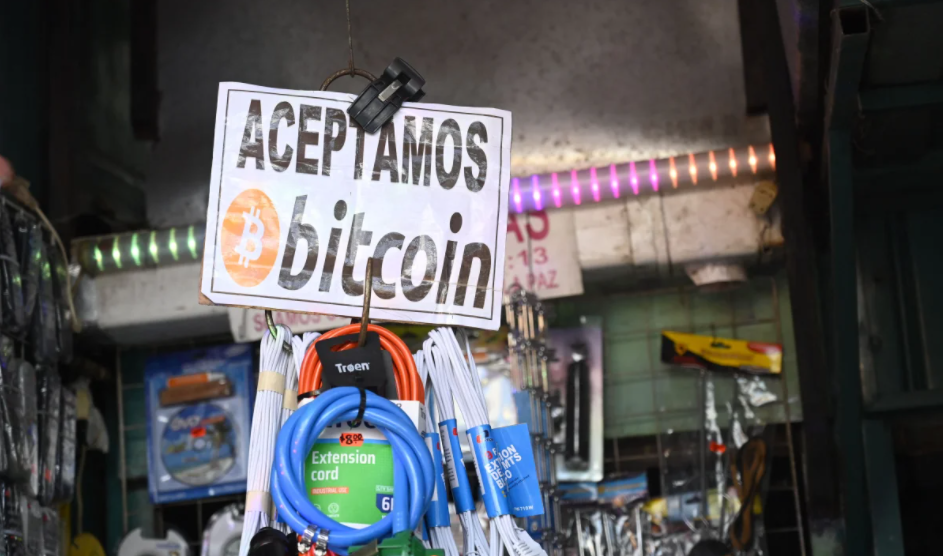Invest in the future of Salvadoran crypto with President Sanchez’s new “volcano bond.” The crypto city project, which is expected to take 10 years, will be powered by a volcano that supplies energy to the entire nation. If you want to get in on this project for as little as $100, then purchase a “volcano bond” today.
The Salvadoran president wants you to invest in his idea to build a cryptocurrency city powered by a volcano, although the International Monetary Fund (IMF) opposes it.
To fund the grand plan, you’ll soon be able to buy a “volcano bond” for as little as $100.
El Salvador Might Have The World’s First Bitcoin Powered Country
Located on the Gulf of Fonseca, where El Salvador, Honduras, and Nicaragua meet, the round bitcoin-shaped settlement will be constructed at the base of Conchagua Volcano.
He says the project will cost more than C$20 billion, which is equivalent to 300,000 bitcoins. The volcano produces geothermal power, which will be used to mine the cryptocurrency.
The initial offering in 2022 will be a US$1 billion bond offering, with half of the proceeds going towards the funding of the city and half being invested in Bitcoin.
During the launch event, Bukele announced that the space will include everything related to Bitcoin, including residential areas, commercial areas, services, museums, entertainment, bars, restaurants, airports, ports, and trains.
The value-added tax (same as sales tax) will be the only tax imposed on city residents.
The announcement was made on Nov. 20 by the 40-year-old leader, dressed all in white with backwards baseball caps. The stage graphics included images of Bukele and UFOs, though not all went smoothly as he had hoped.
A screen on stage could not keep pace with Bukele’s words, and he had to ask the technicians to switch slides. This comes two months after the country made bitcoins legal tender alongside the dollar, which the IMF criticized once again on Monday.
In the staff report on the 2021 Article IV mission to El Salvador, the IMF stated that bitcoin’s high volatility poses significant risks to consumer protection, the integrity of financial markets, and financial stability.
“Its use also gives rise to fiscal contingent liabilities.”
Could Bitcoin Mining Actually Help To Save The Planet?
About 27 per cent of El Salvador’s electricity already comes from geothermal energy sources.
In a blog post, Ricardo Navarro from the Salvadoran Center for Appropriate Technology expressed his skepticism about Bukele’s plan to mine bitcoins using a volcano.
“My impression is that he lives in a parallel world. You know, a world of illusions,” said the environmental campaigner.
“It doesn’t matter where the energy comes from. What matters is the amount of electricity that’s going to demand that, and here in El Salvador we don’t have enough electricity produced with our own means. We have to buy oil for that. So that’s the problem.”
To prove the Conchagua Volcano can produce enough electricity, Navarro says further research is needed.
“I think the president has the impression that he puts a pipe [in] and he gets geothermal energy,” said Navarro. “If it were economically feasible, they would have done it already and not be importing oil.”

The Cambridge Center for Alternative Finance estimates Bitcoin mining using 115 terawatt hours of electricity every year. That’s more energy than The Netherlands consumes, and Bitcoin mining’s nature means that number will keep on rising.
Most of that energy comes from non-renewable sources,
Diving Into The Environmental Impact Of Bitcoin Mining
Canadian Alex Tapscott is a keen advocate of cryptocurrency and its underlying blockchain technology.
In his book Blockchain Revolution, Tapscott and his father co-wrote, “I think the devil is in the details. I think there are still a lot of questions about how Bitcoin City will work.”
“But I think that the rollout so far of Bitcoin in the country has been better than I think a lot of people expected.”
As of one month after the currency’s launch, 12 percent of Salvadorans have used Bitcoin. The country gave US$30 to every resident who adopted a Bitcoin wallet.
Tapscott believes the worldwide attention alone will drive investments to the impoverished nation, despite reports of technical problems with Bitcoin ATMs and protests against their adoption.
“This is clearly an unprecedented experiment, and it’s being done on the biggest scale really,” said Tapscott.
“I do think there are risks, but I also think there’s lots of potential. And I think that the alternative is hardly desirable for the country.”
Via this site.


